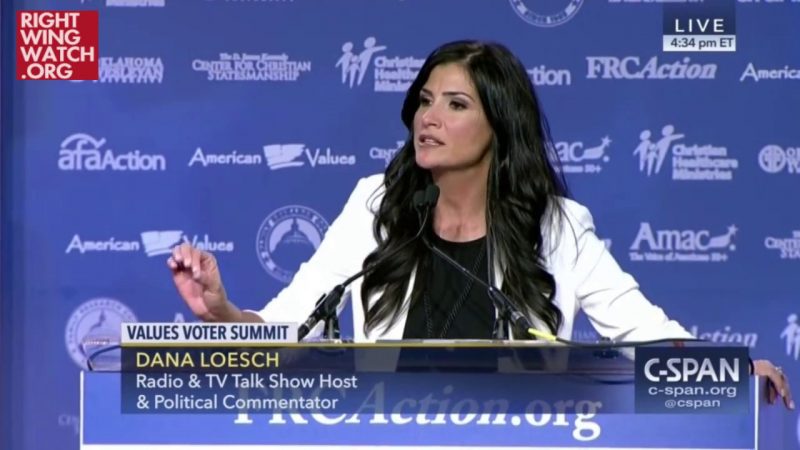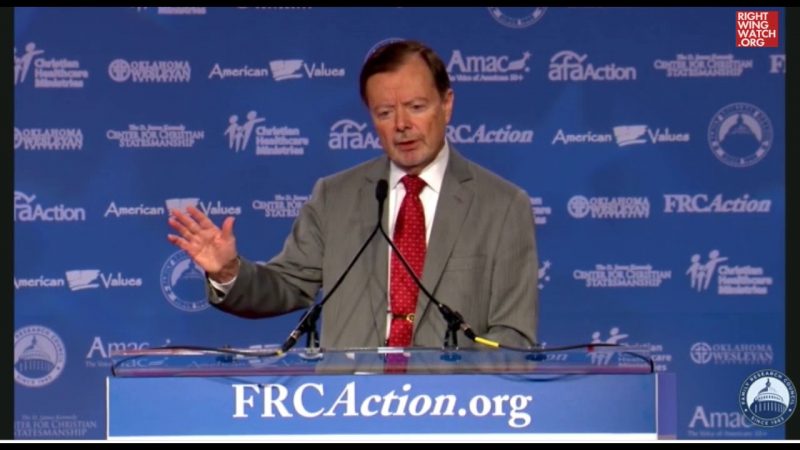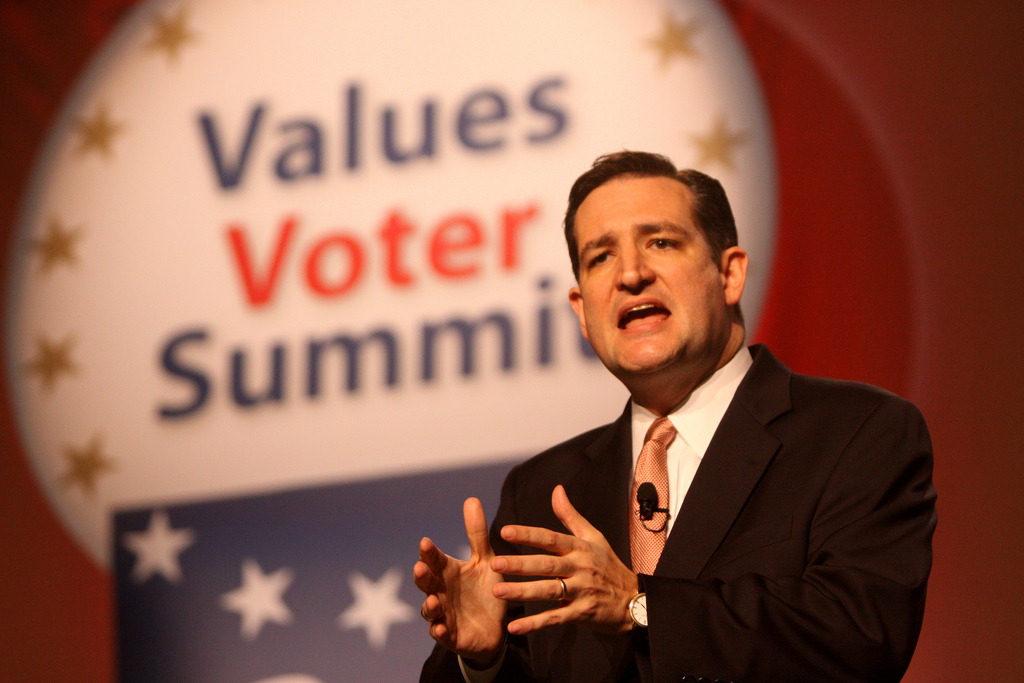At the Values Voter Summit on Saturday, two panels painted strikingly different pictures of the state of social conservative policy priorities.
The first, “Winning on Our Issues: How FRC’s Policy Partners Rack Up Wins,” celebrated the perceived successes of the anti-LGBTQ group’s affiliates across red and blue states.
The panel included speakers from the Family Research Council’s Washington, Massachusetts, Delaware and Florida affiliates who shared their tactics to advance the FRC’s agenda in their states. Panelists touched on a range of “victories,” from preventing the passage of a bill that would have banned harmful “conversion therapy” in Washington to passing a bill that defunded Planned Parenthood in Florida (which was later blocked by a judge).
Joseph Backholm from the Family Policy Institute of Washington detailed his efforts to prevent LGBTQ advocates from passing bills that would ban the dangerous practice of conversion therapy, asserting that they got progressive advocates in the state house to shoot down their own bill. Republicans in the legislature rewrote the bill to separate out the talk therapy and aversion therapy aspects of conversion therapy, and when Republicans in the Senate sent the amended bill that did not include talk conversion therapy back to the House, the Democrats killed that bill. Interestingly, Backholm whitewashed conversion therapy as a “choice” for children: “In reality it’s [LGBTQ advocates] taking away choices from kids and what they want.”
The Delaware Family Policy Council, headed by Nicole Theis, has seen its efforts to roll back abortion rights in the state thwarted, although Theis offered up an alternative way to define a “win”:
When a situation comes up, we look at a win as—did we gain influence, credibility? Were we able to expose deceit, evil? Are we positioned to make change in the next battle? We welcomed the opportunity to get our allies ready in the legislature. With help of national allies like Alliance Defending Freedom, we got an expert neonatologist there [to testify against an abortion access bill] and gained tremendous credibility on the floor and made allies feel equipped.
The session wrapped up with panelists encouraging attendees to reach out to Black and Latino churches. John Stemberger from the Florida Family Policy Council, who said in the wake of the Pulse nightclub shooting that he was tired of seeing “special interest rainbow flags,” argued that Latino churches understand “la familia” and are natural allies to conservative causes. Backholm agreed: “The problem is not churches—it’s white churches… it’s the white people that are afraid in America. Find non-white churches and they are allies.”
While the “Winning on Our Issues” session was optimistic, another breakout session on these issues had a less rosy tone.
“What the Religious Liberty Movement Can Learn from the Victories of the Pro-Life Movement” depicted a starker landscape for the anti-LGBTQ movement that has been attempting to advance its agenda under the guise of “religious liberty.” Panelist Hunter Baker, professor of political science at Union University, decried the Obergefell decision and quoted from late Justice Antonin Scalia’s dissent that the decision “put religious people on shaky ground.”
Baker said that there were “massive” implications of perceived threats to religious liberty from the left, like pushing for LGBTQ rights, for an evangelical university like the one he works at: “The simple fact is that with a Department of Education, with the right mindset, it would not require an act of Congress to put us out of business.”
Chuck Donovan, president of the Charlotte Lozier Institute, the research arm of the anti-abortion Susan B. Anthony List, emphasized that those within the “religious liberty” movement see themselves in a “defensive crouch.” He also broke from the tone of the prior session, in which panelist Nicole Theis called the argument that anti-LGBTQ conservatives are bigoted “emotionally exploitative.” “You have to be willing to admit the valid points of opponents even in the middle of an intense fight,” Donovan said. He said that conservatives can recognize the existence of bigotry but should define it more narrowly than liberals do. He said, for example, that if people refuse to read Oscar Wilde because he was gay then that can legitimately be called bigoted.
Donovan also attributed his group’s anti-abortion successes to the power of political organizing. Noting that they learned from Obama’s first campaign, Donovan said that SBA List has already knocked on 100,000 doors across six states this year.
Jeanne Mancini of March for Life hedged on the success of the anti-abortion movement, saying that it’s difficult to speak about “pro-life victories” with the “loss of 59 million Americans” to abortion. However, she enthusiastically characterized a study finding that eight in 10 Americans support limiting abortion in the first three months of pregnancy as a win in their campaign to change hearts and minds. (A recent Gallup poll found that only a slight majority—54 percent—of Americans support reducing abortion rights).
Like Donovan, who alluded to lessons learned from Barack Obama’s campaign, she suggested that audience members who want to learn how to successfully change culture read “After the Ball,” a book that was published in the mid-nineties about changing attitudes about gay people.
As the panel wrapped up, conversation turned to the Masterpiece Cakeshop case. Baker said that there is a “good chance” the case will end up decided by swing vote Justice Anthony Kennedy. Despite the doomsday tenor of most of the panel, he predicted that the court could rule in favor of the baker, Jack Phillips.







